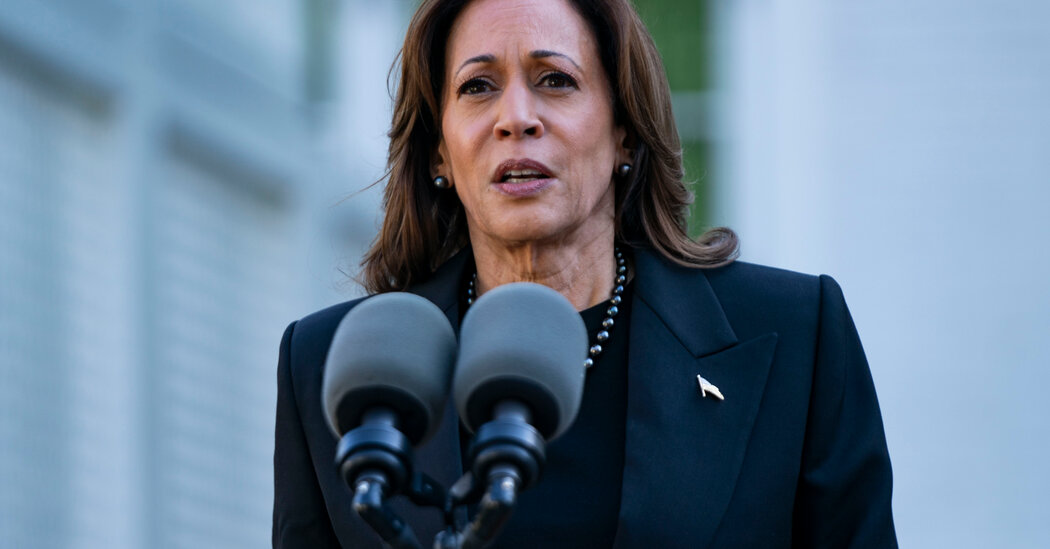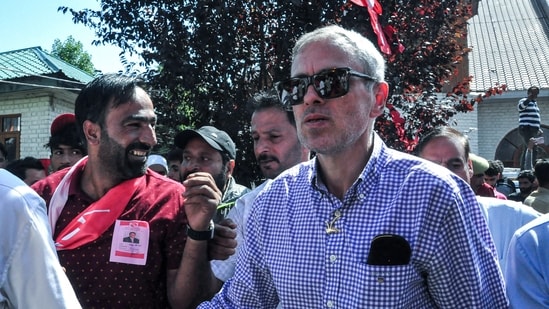Vice President Kamala Harris Addresses Criticism Over Not Having Biological Children in Candid Podcast Interview
In a refreshing and candid conversation on the popular podcast “Call Her Daddy,” Vice President Kamala Harris tackled recent criticisms from some Republican figures regarding her lack of biological children. In the interview, which aired on Sunday, Harris described the commentary as “meanspirited” and emphasized the importance of understanding the diverse experiences of women regarding motherhood.
The discussion was sparked by remarks from Arkansas Governor Sarah Huckabee Sanders, who suggested that having biological children contributed to her humility—a quality she implied Harris lacked. Responding to this, Harris asserted, “I don’t think she understands that there are a whole lot of women out here who, one, are not aspiring to be humble.” She highlighted the love and family that many women, including herself, experience, regardless of whether they have biological children.
Harris, who is stepmother to Cole and Ella Emhoff, expressed her deep affection for her stepchildren, stating, “I love those kids to death.” She pointed out that family can take many forms and that societal views on family dynamics have evolved significantly since the 1950s. This sentiment resonated with listeners, especially in a time when discussions around family and motherhood are more nuanced than ever.
The Vice President’s appearance on “Call Her Daddy” is part of a broader strategy to engage with younger voters who may feel disillusioned with traditional politics. Host Alex Cooper, who has built a massive following among Gen Z and millennial women, asked Harris tough questions about trust and political engagement. “Why should we trust you?” Cooper inquired, to which Harris responded by referencing her career dedicated to advocating for freedoms and rights.
Throughout the 40-minute conversation, the duo delved into pressing issues such as reproductive rights, economic challenges, and the impact of student debt. Harris, who made history as the first Vice President to visit a reproductive health clinic, emphasized the critical services these clinics provide beyond abortion, including cancer screenings and health testing. She lamented the closures of many clinics following the overturning of Roe v. Wade, highlighting the urgent need for comprehensive reproductive healthcare.
On the economic front, Harris discussed her advocacy for policies aimed at supporting families, such as a proposed $6,000 tax credit for families with children under one year old and assistance for first-time homebuyers. She also reiterated her commitment to fighting for student debt relief, recognizing it as a significant barrier for many young people looking to start families or buy homes.
Cooper, who has recently ventured into political discussions on her podcast, noted her initial hesitation to invite Harris, having previously avoided political guests. However, the conversation proved to be a vital platform for addressing the concerns of young women, particularly in the wake of the Supreme Court’s decision to overturn Roe v. Wade.
As the interview wrapped up, Harris’s message was clear: women’s experiences and choices should be respected and celebrated, regardless of societal expectations. Her willingness to engage in these discussions on platforms like “Call Her Daddy” marks a significant step in bridging the gap between politics and the younger generation, fostering a dialogue that is both relevant and necessary in today’s world.



